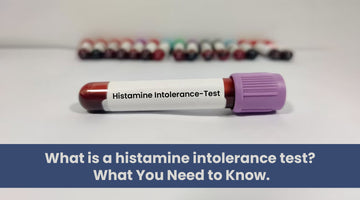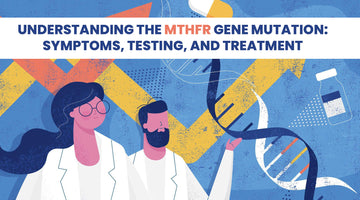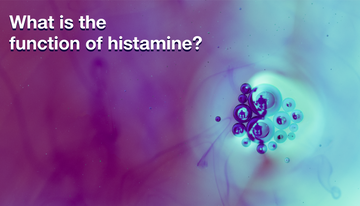Food intolerance, food allergies, and histamine intolerance – these terms are often used interchangeably, but they represent distinct conditions with varying implications for your health.
In this blog, we'll understand the differences between them, explore what histamine intolerance is, and discuss why you might need a histamine intolerance test.
Food Intolerance vs. Food Allergy vs. Histamine Intolerance

To understand histamine intolerance, it's essential to differentiate it from food intolerance and food allergies.
-
Food Allergy:
-
Food Intolerance:
The Complex Nature of Histamine Intolerance
Histamine intolerance is a unique condition that goes beyond the realm of food allergies and intolerances. While it does involve food, it's not merely about the histamine content in what you eat. Histamine is an essential chemical produced by the immune system to protect the body from potential threats, such as allergens. This crucial molecule is stored in specialized cells called mast cells, scattered throughout various body tissues.
Histamine acts as a messenger in the body, playing a pivotal role not only in immunity but also in the nervous system. When histamine is released by immune cells like mast cells, it binds to four different types of receptors on other cells. Depending on the receptor it binds to, histamine can trigger various effects, including inflammation, itching, low blood pressure, and bronchoconstriction. While histamine is necessary for the proper functioning of both the immune and nervous systems, it must be regulated.
Uncontrolled histamine levels can lead to chronic inflammation, which can have detrimental consequences for health. To address symptoms resulting from excessive histamine, antihistamine drugs have been developed. These drugs work by blocking histamine's action, alleviating allergy symptoms. However, they don't address the root cause, which is an excess of histamine.
For those dealing with histamine intolerance, which occurs when the body can't adequately break down histamine, it's essential to consider alternative approaches. This is where products like our Histamine Control pills come into play.
Histamine Intolerance: Is a Test Necessary?
If you suspect you might be experiencing histamine intolerance, you may wonder if a histamine intolerance test is necessary. Histamine intolerance arises when your body accumulates too much histamine, leading to symptoms like digestive issues, headaches, skin rashes, and nasal congestion.
The root of histamine intolerance often lies in the inadequate function of two enzymes: diamine oxidase (DAO) and histamine N-methyltransferase (HNMT). These enzymes are essential for breaking down histamine in the body. Their malfunction can result from genetic factors, medications, toxins, stress, gut disorders, or the consumption of histamine-rich foods.
While several methods are used to test for histamine intolerance, none of them are universally reliable or widely accepted by medical professionals. Some of these tests include:
-
Histamine Provocation Test:
-
DAO Measurement:
-
Histamine 50 Prick Test:
So, what's the best way to determine if you have histamine intolerance?

If you suspect histamine intolerance, one effective approach is to undertake an elimination diet. This involves avoiding foods high in histamine or those that trigger histamine release for a few weeks and observing if your symptoms improve. Foods to be cautious of during this period include alcohol, aged cheeses, fermented foods, cured meats, tomatoes, spinach, avocados, citrus fruits, and chocolate. Consulting with your doctor before taking any supplements or medications that might affect histamine levels or DAO activity is also advisable.
Additionally, you can explore products like our Histamine Control pills, designed to target DAO and HNMT, enhancing their function and supporting healthy histamine balance. If you notice that your histamine intolerance symptoms improve with each dose, it's highly likely that you are dealing with histamine intolerance.
In conclusion, histamine intolerance is a distinct condition that demands specific attention. While there isn't a foolproof test for histamine intolerance, the symptoms can often be managed through dietary modifications, supplements, and medications targeting histamine-regulating enzymes. If you suspect histamine intolerance, consulting with a healthcare professional is crucial to determine the best course of action for your specific needs.





